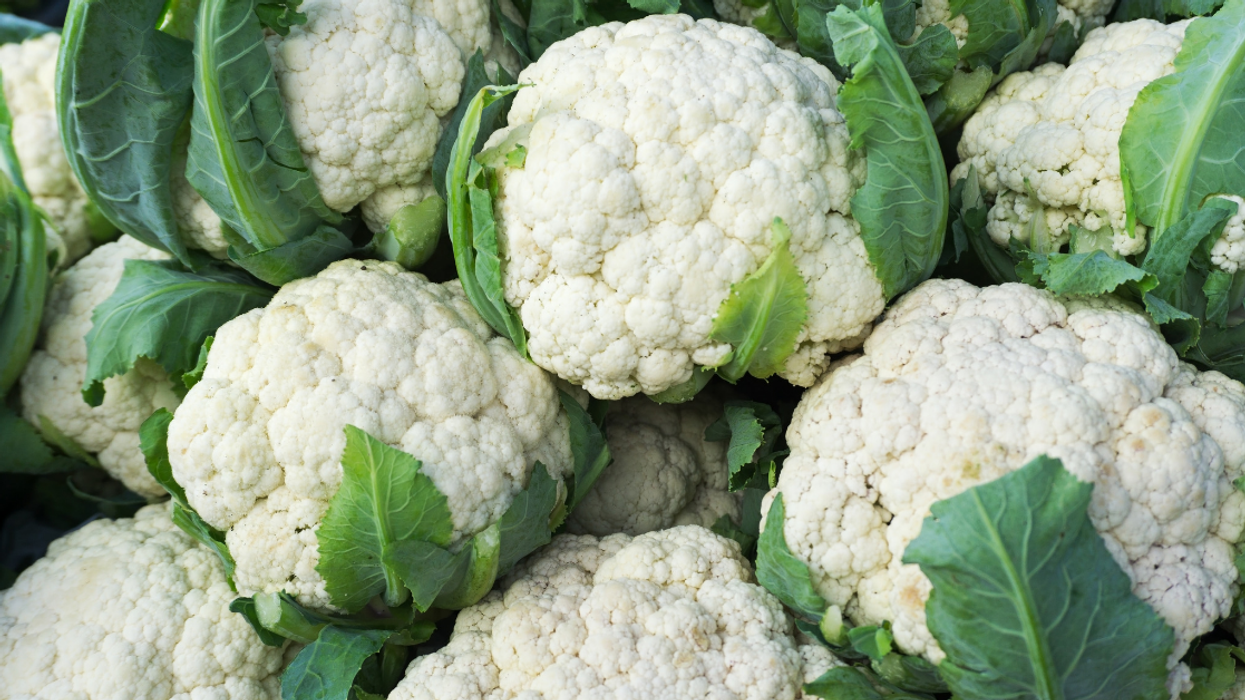We don't much love cauliflower rice, either but is that any reason to ban it?
Well, as it turns out, Arkansas' reason behind banning the oft-maligned rice substitute has to do with its own economy.
The health benefits of cauliflower rice versus regular rice are what might attract some people to the grain substitute, but Arkansas' state legislature says the damage it is doing to its economy is worse than any health benefit.
According to Vice's Munchies, "over 40 percent of American rice is grown in Arkansas, where the rice industry makes up about 20,000 jobs and creates $1.3 billion for the state's economy per year."
The state legislature seeks to define what can be labeled as "rice."
According to the definition proposed in the anti-cauliflower rice bill, "rice" can only mean "the whole, broken, or ground kernels" from the grain species Oryza sativa L. or Oryza glaberrima, or from one of the four grass species in the Zizania or Porteresia genus (aka, wild rice).
If something outside of these specifications is labeled "rice," a fine could be levied by the state.
"This law only affects people who want to deceive the public about how their food originated," State Rep. David Hillman (R-Almyra) said.
"And if you're not trying to deceive the public, this will not affect you or any of the outlets who sell these products."
However, most think this law constitutes a violation of the first amendment and seems to have subtle corporate agenda behind it."It's bad public policy," said Jessica Almy, director of the Good Food Institute to the Arkansas Democrat Gazette, a "Washington, D.C., nonprofit in support of foods known as cell-based and plant-based meats."
She says as with almond milk, "people clearly understand it comes from almonds" because it's called almond. Milk. Not milk."
The fine levied for a "mislabel" is $1,000.
So go elsewhere with your bags of cauliflower rice.
Begone!








 vasosecret/TikTok
vasosecret/TikTok
 dontlookatmedoll156/TikTok
dontlookatmedoll156/TikTok alyssa.b345/TikTok
alyssa.b345/TikTok EllieBelly/TikTok
EllieBelly/TikTok Shelby Daniel/TikTok
Shelby Daniel/TikTok J/TikTok
J/TikTok indigo1009/TikTok
indigo1009/TikTok Kam/TikTok
Kam/TikTok





 @starduster14021/X
@starduster14021/X r/TheMajorityReport/Reddit
r/TheMajorityReport/Reddit r/TheMajorityReport/Reddit
r/TheMajorityReport/Reddit r/TheMajorityReport/Reddit
r/TheMajorityReport/Reddit r/TheMajorityReport/Reddit
r/TheMajorityReport/Reddit r/TheMajorityReport/Reddit
r/TheMajorityReport/Reddit r/TheMajorityReport/Reddit
r/TheMajorityReport/Reddit @sciencexspirit/Bluesky
@sciencexspirit/Bluesky


 90s popcorn GIF
90s popcorn GIF  signing season 3 GIF
signing season 3 GIF  home alone pepsi GIF
home alone pepsi GIF  Machine Production GIF by Finder Relais Nederland
Machine Production GIF by Finder Relais Nederland  No No No GIF
No No No GIF